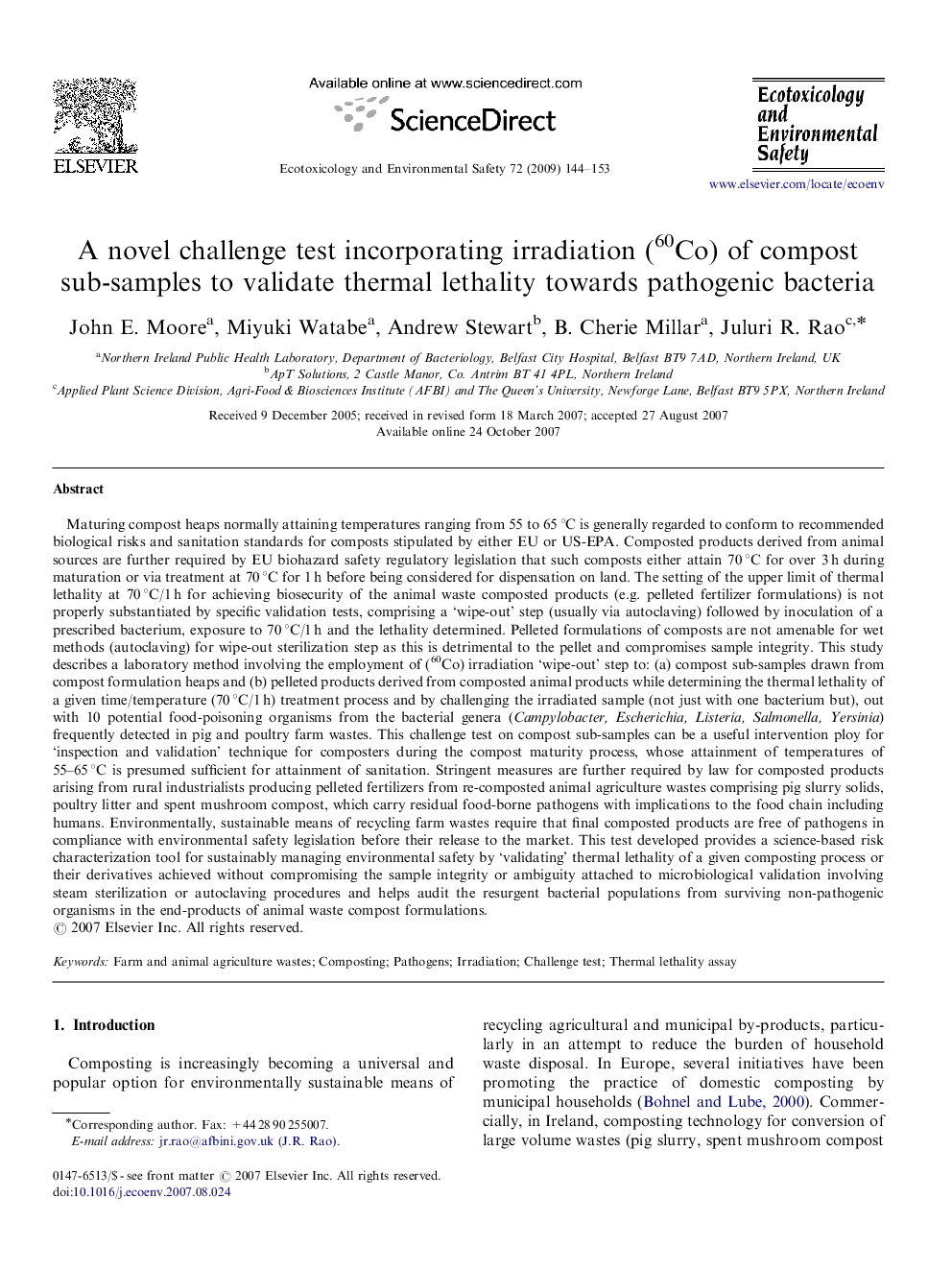| کد مقاله | کد نشریه | سال انتشار | مقاله انگلیسی | نسخه تمام متن |
|---|---|---|---|---|
| 4421621 | 1308518 | 2009 | 10 صفحه PDF | دانلود رایگان |

Maturing compost heaps normally attaining temperatures ranging from 55 to 65 °C is generally regarded to conform to recommended biological risks and sanitation standards for composts stipulated by either EU or US-EPA. Composted products derived from animal sources are further required by EU biohazard safety regulatory legislation that such composts either attain 70 °C for over 3 h during maturation or via treatment at 70 °C for 1 h before being considered for dispensation on land. The setting of the upper limit of thermal lethality at 70 °C/1 h for achieving biosecurity of the animal waste composted products (e.g. pelleted fertilizer formulations) is not properly substantiated by specific validation tests, comprising a ‘wipe-out’ step (usually via autoclaving) followed by inoculation of a prescribed bacterium, exposure to 70 °C/1 h and the lethality determined. Pelleted formulations of composts are not amenable for wet methods (autoclaving) for wipe-out sterilization step as this is detrimental to the pellet and compromises sample integrity. This study describes a laboratory method involving the employment of (60Co) irradiation ‘wipe-out’ step to: (a) compost sub-samples drawn from compost formulation heaps and (b) pelleted products derived from composted animal products while determining the thermal lethality of a given time/temperature (70 °C/1 h) treatment process and by challenging the irradiated sample (not just with one bacterium but), out with 10 potential food-poisoning organisms from the bacterial genera (Campylobacter, Escherichia, Listeria, Salmonella, Yersinia) frequently detected in pig and poultry farm wastes. This challenge test on compost sub-samples can be a useful intervention ploy for ‘inspection and validation’ technique for composters during the compost maturity process, whose attainment of temperatures of 55–65 °C is presumed sufficient for attainment of sanitation. Stringent measures are further required by law for composted products arising from rural industrialists producing pelleted fertilizers from re-composted animal agriculture wastes comprising pig slurry solids, poultry litter and spent mushroom compost, which carry residual food-borne pathogens with implications to the food chain including humans. Environmentally, sustainable means of recycling farm wastes require that final composted products are free of pathogens in compliance with environmental safety legislation before their release to the market. This test developed provides a science-based risk characterization tool for sustainably managing environmental safety by ‘validating’ thermal lethality of a given composting process or their derivatives achieved without compromising the sample integrity or ambiguity attached to microbiological validation involving steam sterilization or autoclaving procedures and helps audit the resurgent bacterial populations from surviving non-pathogenic organisms in the end-products of animal waste compost formulations.
Journal: Ecotoxicology and Environmental Safety - Volume 72, Issue 1, January 2009, Pages 144–153